Moral understanding Reading Worksheets for Ages 5-8
6 filtered results
-
From - To
Introducing our engaging Moral Understanding Reading Worksheets designed specifically for ages 5-8! These worksheets encourage young readers to explore important concepts such as kindness, empathy, and fairness through captivating stories and interactive activities. Each worksheet features relatable scenarios that spark critical thinking, help children identify moral values, and foster discussions about right and wrong. Ideal for classrooms or home learning, our resources aim to nurture social awareness and emotional intelligence in young learners. Download these fun worksheets today and support your child's journey to becoming a thoughtful and responsible individual while boosting their reading skills!
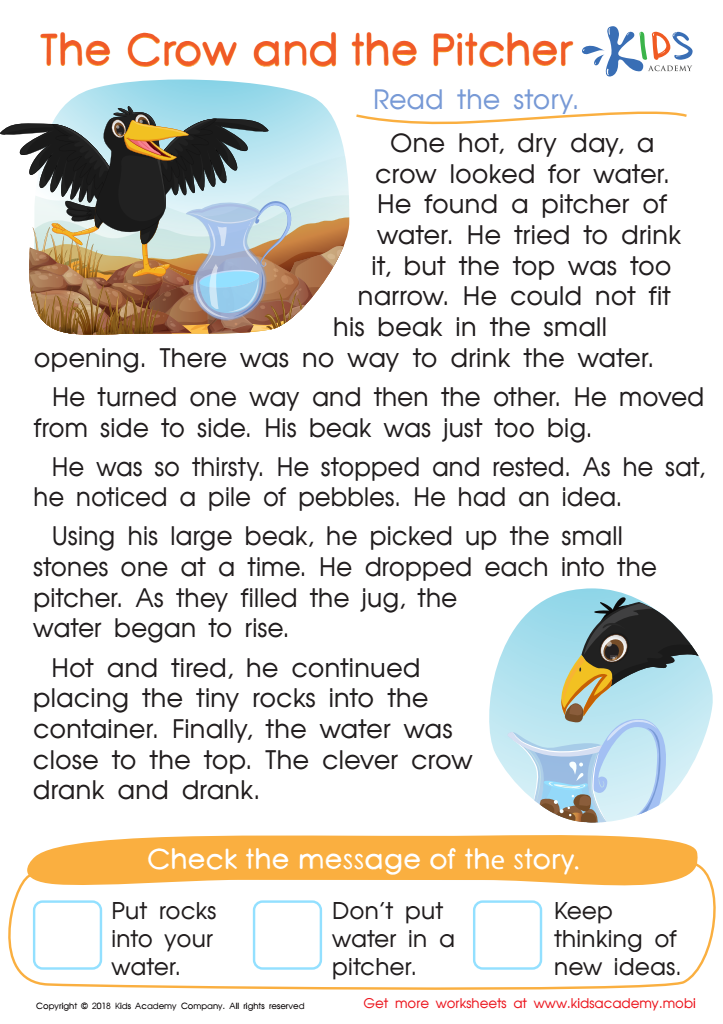

The Crow and the Pitcher Worksheet
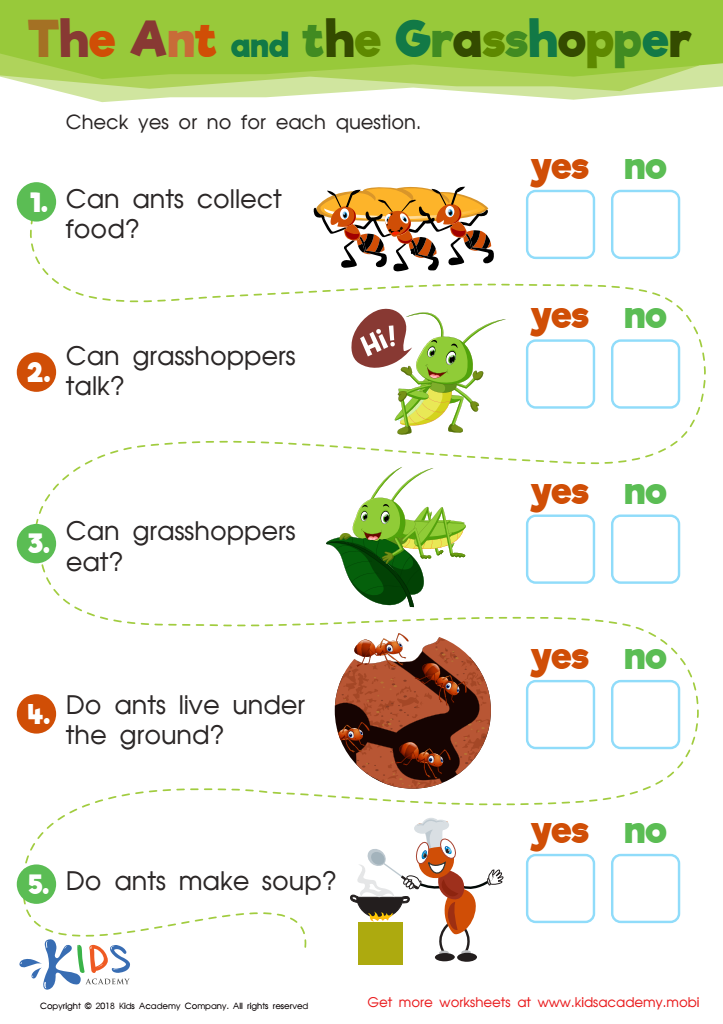

The Ant and The Grasshopper Worksheet
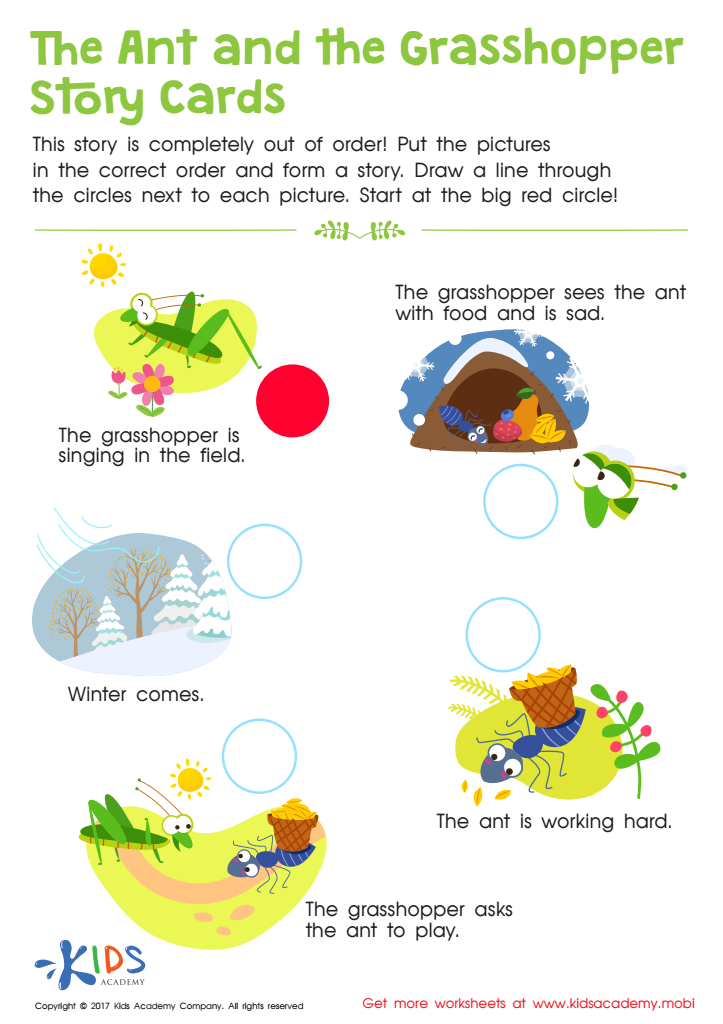

The Ant and The Grasshopper Worksheet
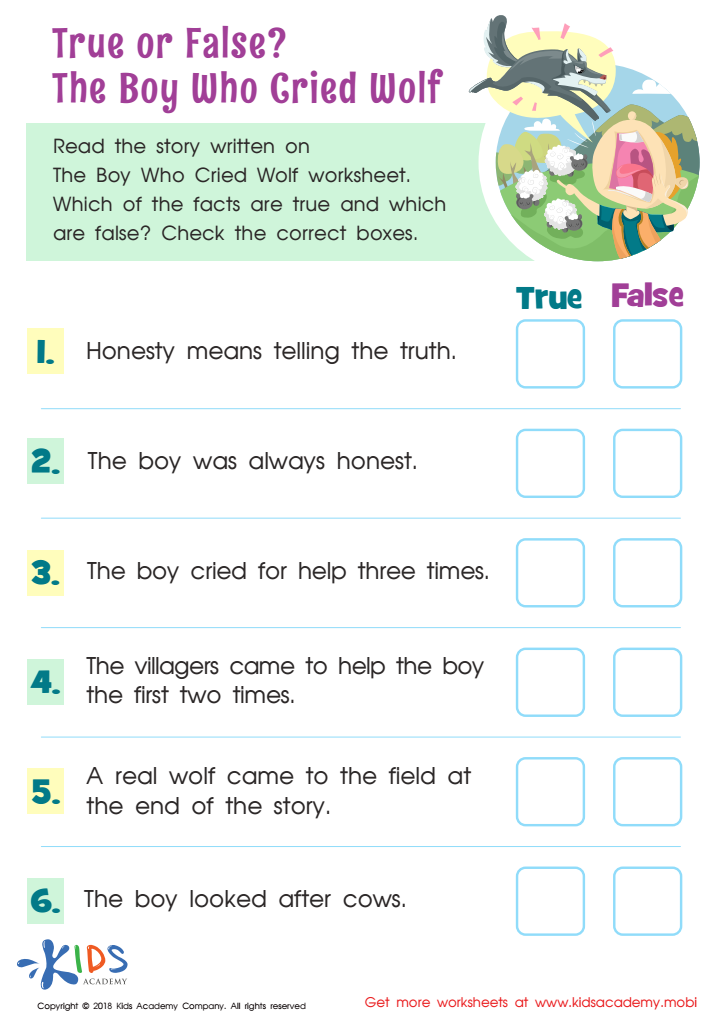

True or False? The Boy Who Cried Wolf Worksheet
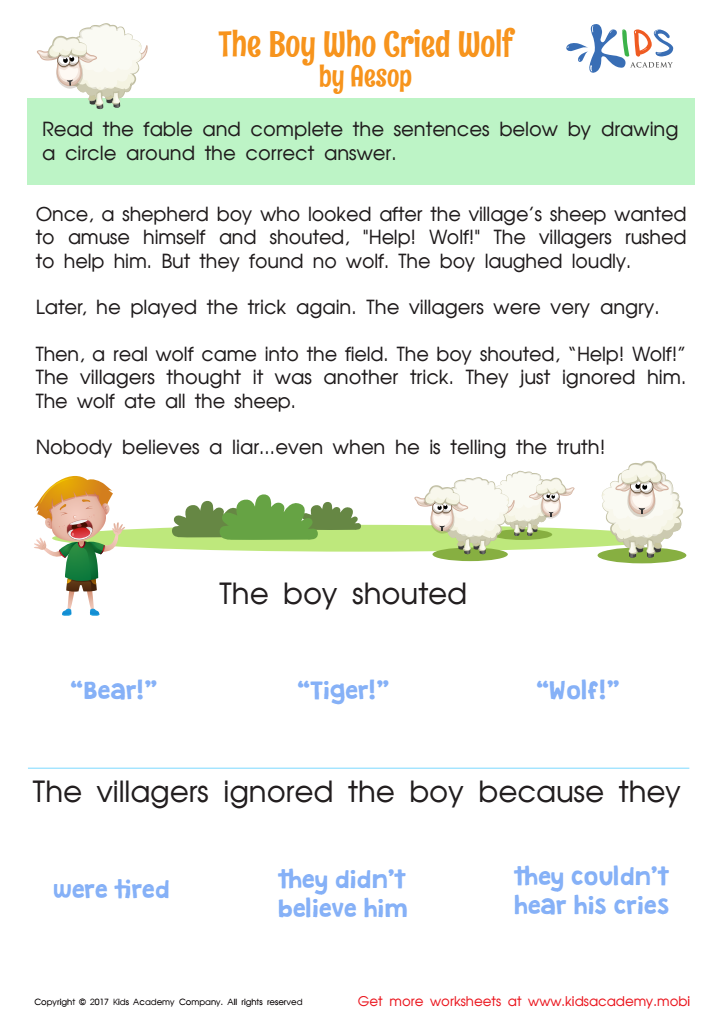

The Boy Who Cried Wolf Worksheet
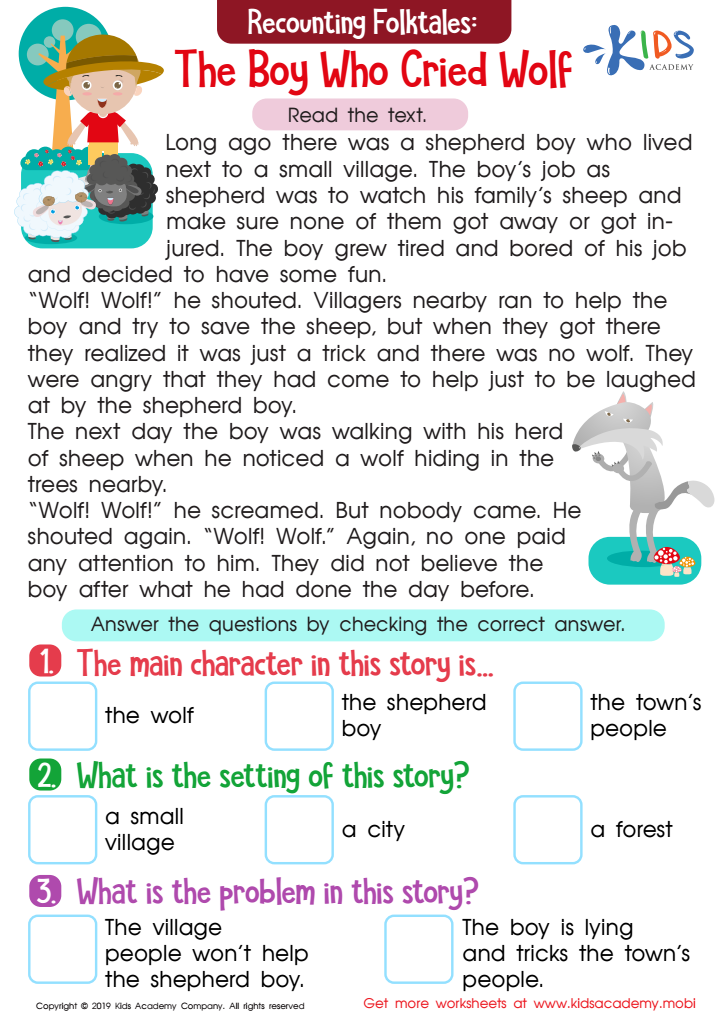

The Boy Who Cried Wolf Part 1 Worksheet
Moral understanding is crucial for children aged 5-8, and both parents and teachers play a vital role in fostering this development through reading. At this early stage, children are beginning to form their social identities and understand the world around them, making it essential for them to explore concepts of right, wrong, empathy, and fairness.
Reading stories that showcase moral dilemmas, friendships, diversity, and social responsibility can provide children with relatable contexts to comprehend complex ideas. These narratives not only engage young readers but also prompt critical discussions about values and choices, shaping their moral compass.
Moreover, books often depict characters facing challenges and making decisions, which can inspire children to reflect on their actions and the consequences involved. When adults participate in these reading experiences, they can guide discussions, ask thought-provoking questions, and reinforce lessons.
By addressing moral understanding through reading, parents and teachers help build essential skills such as empathy, ethical reasoning, and the ability to navigate social interactions. This foundation ultimately supports children's overall development as compassionate and responsible individuals, promoting a kinder society. Encouraging moral understanding at this age not only benefits the individual child but contributes to the community as a whole.

 Assign to My Students
Assign to My Students












